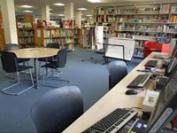Teaching languages in Higher Education
Date: 21 May, 2009
Location: CILT, the National Centre for Languages, London
Event type: Workshop

This one-day workshop is aimed at post-graduate students teaching languages in HE. It will also be of interest to new academic staff (less than two years) and part-time teachers of languages.
This event is organised by the Subject Centre for Languages Linguistics and Area Studies in collaboration with CILT, the National Centre for Languages.
The workshop aims to support those new to teaching in HE and/or those who juggle teaching with studies, research, part-time employment and other responsibilities by presenting strategies and sharing good practice in a number of areas including:
- Exploring the increasingly diverse nature of language provision in HE and the implications for teachers
- Managing teaching and research
- Resource development
- Motivating your students
- Managing mixed ability classes and teaching ab initio
- Assessment and teaching to learning outcomes
- Teaching as a language specialist and as a non-language specialist
- LLAS and CILT support for teaching and learning of languages
Fees
There is no charge to attend for employees and postgraduate students of publicly funded UK educational institutions. The fee for employees and postgraduate students of private institutions/organisations and non-UK institutions is £40.
Lunch will be provided. We reserve the right to charge a £50.00 non-attendance fee.
Travel bursary
A travel bursary is available for this event.
| Time | Session |
|---|---|
| 09.45 - 10.20 | Registration and coffee |
| 10.20 - 10.30 | Welcome and intro |
| 10.30 - 11.15 | Language Teaching in HE - to whom, by whom, what, where, how and why Jocelyn Wyburd: Executive Director University of Manchester Language Centre, Director of Language Teaching and Learning for the School of Languages |
| 11.15 - 12.00 | How we support teaching and learning in HE LLAS and CILT |
| 12.00 - 12.30 | Sharing personal experience: managing teaching and research Dr Anil Biltoo, Coordinator Less Widely Taught Languages, SOAS Language Centre |
| 12.30 - 13.30 | Lunch and tour of library |
| 13.30 - 15.15 | Workshops (will run twice)
|
| 15.15 - 15.30 | Tea and coffee |
| 15.30 - 16.15 | Raising the levels of motivation in language learning Antonio Martínez-Arboleda: Senior Teaching Fellow in Spanish, Spanish Language Co-ordinator, Department of Spanish, Portuguese and Latin American Studies School of Modern Languages and Cultures University of Leeds |
| 16.15 - 16.30 | Summary and follow-up e.g. other events |
Event reports
by Paz Marin, University of Cambridge
Teaching Languages in Higher Education was organised by the Subject Centre for Languages Linguistics and Area Studies in Collaboration with CILT, the National Centre for Languages and hosted by CILT. This one-day workshop aimed to support new or part time staff teaching foreign languages in HE by presenting strategies and sharing good practices. There were four presentations and three workshops.
Session 1: Language Teaching in HE –To whom, by whom, what, where, how and why
Jocelyn Wyburd, University of Manchester
In this session all the key elements necessary for the teaching of languages in HE were analysed. It covered the different types of learner, their reasons or commitments to study a Foreign Language, contents to be taught accordingly, and different professionals involved in teaching.
Session 2: How we support teaching and learning in HE
Ali Dickens, LLAS and Louis Greenstok, CILT
This session dealt with the different kinds of support and resources for learning/teaching offered by LLAS and CILT. LLAS deals not only with modern languages programmes or English as a Foreign Language but also with other fields related to modern languages, such as literature, film or cultural studies. Special attention was given to CILT library and the resources it offers. CILT library is open to anybody in the community of learners/teachers of languages. Both LLAS and CILT websites provide with a wide range of information on events, courses, training and activities language related.
Session 3: Sharing personal experience: managing teaching and research
Dr Anil Biltoo, SOAS Language Centre
Dr Biltoo talked about his personal experience as a teacher of French and researcher, specially related to less widely taught languages.
Session 4: Raising the levels of motivation in language learning
Antonio Martínez-Arboleda, University of Leeds
Antonio's presentation adressed different elements that may intervene in motivation of language students. It was pointed out the importance of the emotional element in learning languages and also the need for teachers to be flexible and adapt materials and themselves to different groups of students, even when their level is the same. Also, the teacher should take into account that a bad raport among peers mayaffect motivation and, as a result, the learning process of the whole class.
Besides these sessions, three workshops were offered, with attendance limited to two of them.
Workshop 1: An exploration of the of the Issues Involved
Hillary Rollin, Oxford Brookes University
This workshop offered a useful bibliography and focused on principles, elements and criteria involved in assessment. Experiences in assessment were shared and emphasis was given to consistency, need for students to understand the criteria and the positive impact of good assessment in order to improve learning.
Workshop 2: Using technology for sharing resources
Ali Dickens, Subject Centre for Languages, Linguistics and Area Studies
Based on LLAS website, some useful tools related to e-learning and virtual learning environments were shown in order to share teaching resources. Participantes pointed out the advantages of sharing materials such as saving time, promoting self learning in students and offering them a wide variety of exercises, which increases their approach to languages widening their ways of thinking.
